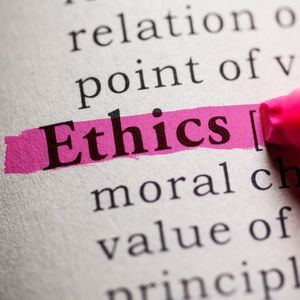
Ethics and Applied Behavior Analysis

Date Published: July 11, 2022
Author: Alania Sabankaya, RBT
As a parent or caregiver of an individual with an ASD diagnosis, have you ever thought about the ethics to which therapists and analysts must adhere when working with clients? It has surely crossed minds when thinking about how to implement programs that promote your child’s learning and success. As Board Certified Behavior Analysts and Behavior Therapists, it is our job to maintain client dignity, promote respect, and to do no harm.
There are many rights to consider when creating learning environments for our clients. Below are important rights to keep in mind:
An Individual Has a Right to a Therapeutic Environment
Team members work to create the least restrictive, socially significant, and physically safe environments responsive to individual needs. These spaces include leisure activities, and access to educational and engaging, age-appropriate material.
An Individual Has a Right to Services Whose Overriding Goal is Personal Welfare
Personal welfare involves meaningful short-term & long-term goals that benefit the individual’s functional and independent skills.
An Individual Has a Right to Programs That Teach Functional Skills
The goal of services is to increase the ability to learn functional skills that enable individuals to gain access to their environment and society. This involves skill acquisition, maintenance, and generalization across environments.
An Individual Has a Right to Behavioral Assessment and Ongoing Evaluation
Functional Analyses are an excellent way to rule out any medical conditions that may be in need of different treatments than the ones we can offer. The FAs also serve as a starting point to identifying functions of behavior and any barriers to learning or development. BCBAs work closely with caregivers to create and develop a plan that will be continuously evaluated and monitored for change if needed. Direct observations and interviews are also part of the process to begin treatment. This is when the team can learn about what target behaviors look like in different environments. Together, the team can work to create effective treatments.
References:
Behavior Analyst Certification Board. (2020). Ethics code for behavior analysts [PDF]. https://www.bacb.com/wp-content/uploads/2020/11/Ethics-Code-for-Behavior-Analysts-210106.pdf
Van Houten, R., Axelrod, S., Bailey, J. S., Favell, J. E., Foxx, R, M., Iwata, B. A., & Lovaas, O. I. (1988). The right to effective behavioral treatment. Journal of Applied Behavior Analysis, 21(4), 381–384.
About the Author:
Alania Sabankaya is a Registered Behavior Technician on the Faces Behavioral Services team. Faces Behavioral Services is a department of the Pacific Autism Center for Education that supports children with autism in reaching their full potential utilizing Applied Behavior Analysis (ABA).
Disclaimer: “Keeping Up the PACE” is a blog operated by Pacific Autism Center for Education with information provided by professional therapists. This content is not intended for the purpose of diagnosis of any condition. If you have a question for our team, please email us at email hidden; JavaScript is required.

